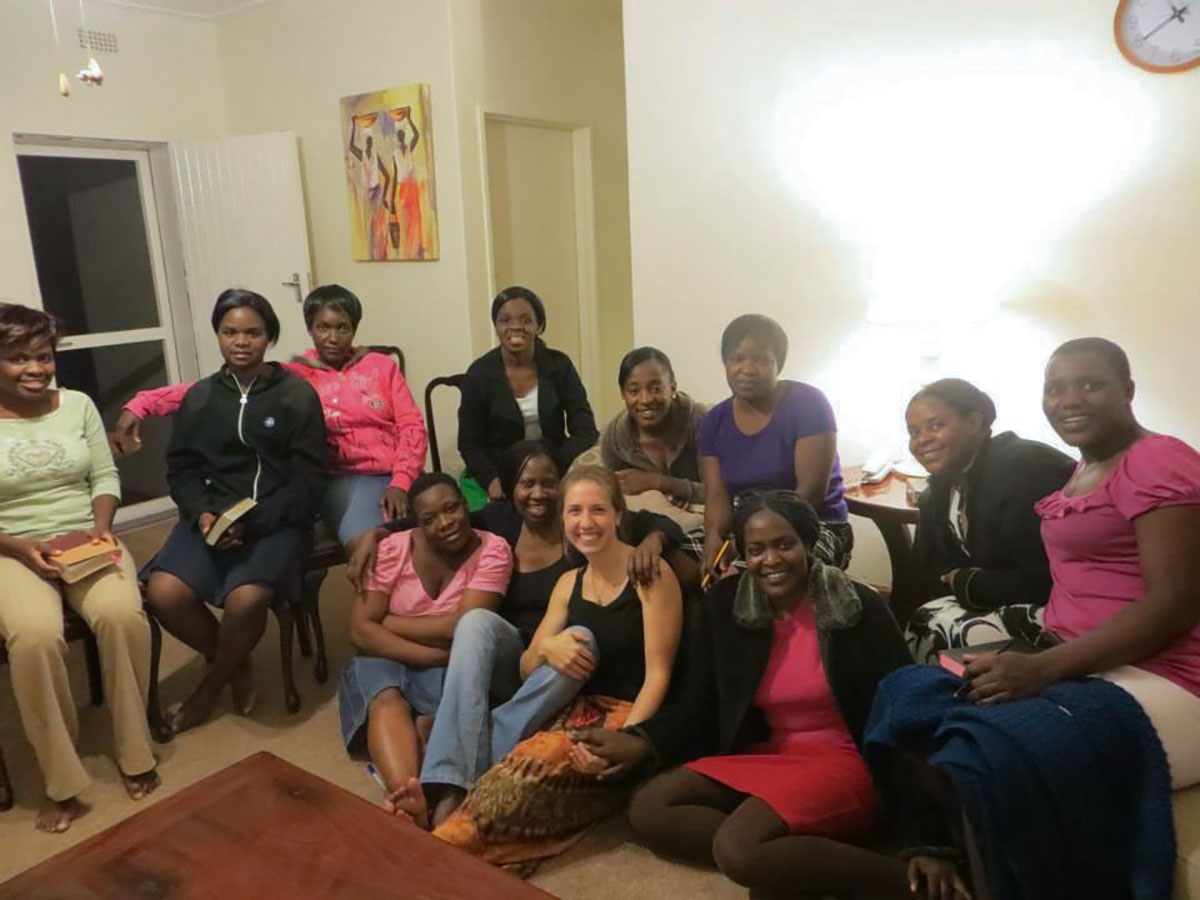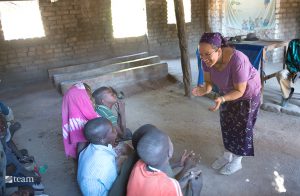
Missionary Life, Sending Churches
Why Churches Should Visit Their Missionaries
July 17, 2018
by Beth Barthelemy

Last fall, my family had our first visitors since arriving on South African soil a year and some months ago. After months of anticipation, our pastor and friends from our Chicago church arrived to spend a week with us.
They didn’t come as a short-term team, with a particular ministry focus. We had no projects lined up for them. They didn’t come to “check up” on us, to make sure we were worth their investment. They didn’t have a list of questions with which to assess our effectiveness or success.
They came with a simple purpose: to be an encouragement to us.
Throughout their visit, both my husband, Ben, and I wondered, Why aren’t more churches doing this?
We have teammates whose churches are generous financially, but most other kinds of support are non-existent. And believe us, after just a short stint on the field, we see our deep need for all kinds of support from our churches back in the States.
Long-term missionaries need you, beyond just your monthly check and prayer. They need you to visit them. Here are some reasons why.
1. It is a major encouragement to the missionary.
The very night they arrived, I told my husband, “I already feel so encouraged – it’s like such a lift to my spirit.”
They didn’t have to actually say anything – just the act of planning the visit, making the long trip and arriving at our door was a gift in and of itself. They could have turned around and left and I would have been so thankful!
But then, over the course of the week, we got to have meaningful conversations – about our family life; about how our kids were doing; about Ben’s Bible school classes and his students, and about how we’ve struggled and grown this year. And being able to share all of that, to hash it out with people who knew us and invested in us pre-field, was huge.
2. It enables the church to see and experience the ministry.
Before our pastor and friends arrived, we lined up a handful of experiences that would give them insight into our ministry.
They attended classes with Ben, and we hosted a dinner with students that evening. They met our coworkers at the college, and from our organization. They spent hours in our home and played with our kids. They took a tour around our city. They attended our church and chatted with our pastor here.

At the end of the week, they expressed how valuable it was for them to be able to put faces to our ministry here.
It’s not just numbers anymore, but peoples’ lives, stories, hopes. It’s not just a vision for ministry anymore, but a tangible experience of that ministry. And we’re not just a picture on their wall, but a family whose life and work they intimately got to be a part of for a week.
3. It reminded us that this ministry isn’t just about us.
While we were fundraising in the States, we were regularly encouraged by the excitement and support people provided. It was obvious that this discipleship ministry in South Africa, this raising up of Christian leaders, wasn’t just about us or God’s leading to us. It was about so much more – about many individuals who were joining us in this ministry and churches who were behind this mission.
We truly felt like Paul when he wrote, “I thank God in all my remembrance of you … because of your partnership in the gospel” (Phil. 1:3, 5, ESV).
After leaving our churches and circles of partners, however, it became easier to forget that this was, indeed, a team project. On hard days — especially for me at home with kids most of the time — I found myself asking God, “Why am I here again? Did we make a mistake, coming to South Africa? Is all of this sacrifice really worth it?”
Having our sending church here, I was reminded in a deep and meaningful way that this ministry was never about just me.
Sure, we are the face of this work, but we could not be here without our churches behind us, without our amazing base of partners in the States, all who have affirmed God’s leading of our family in this direction and expressed a desire to be a part of this ministry. Tearfully and humbly, I have thanked God multiple times for sending our Chicago church to remind me that it’s not all about me. I needed this reminder, and He gave it to me in a powerful way.
There is no price tag you can put on that kind of encouragement.
It’s an investment in your long-term missionaries.
But what about the costs?
You may be thinking, Isn’t it really expensive to send people just to visit? Yes, it is.
Many churches are sending multiple short-term missions teams out every year, some with great effectiveness and others without. There may be great value in redirecting some focus onto the effectiveness of long-term missionaries. After all, they are the ones who are with locals day in and day out, for years, developing relationships, training future leaders, and having potential for a more lasting impact.
Additionally, there is great value in just being with people. We are prone to believe that unless there is a tangible achievement or numerical results, nothing has been done and our efforts have been wasted. This is simply untrue.
Sending people for the primary purpose of encouraging your missionaries is indeed doing something very valuable. It is practicing the ministry of presence. Being with people is encouraging, rejuvenating, and motivating.
In general, every church would be wise to consider their investment in their long-term missionaries. And I mean beyond the financial investment.
Long-term missionaries need much more than just your money every month – we need your prayers, your emails, your intentional connection, your teaching, your accountability, your resources, your care.
Sending a few key people to visit your long-term missionaries is an investment in them and in that ministry. I only wonder how this kind of support would increase the effectiveness and the longevity of long-term missionaries around the world.
Our church ministered to us in profound ways, by simply showing up at our home and being a part of our life for a week.
And we are so thankful.

